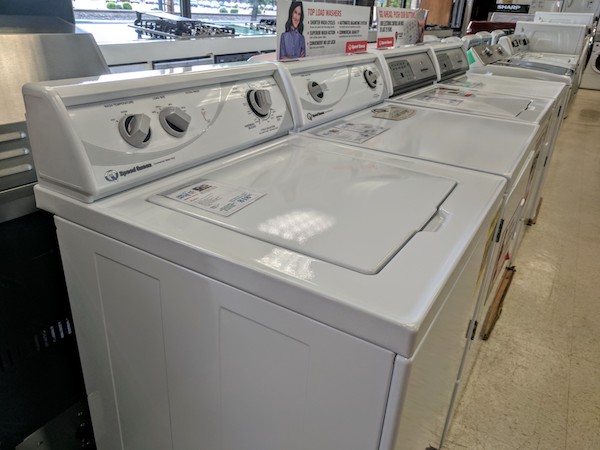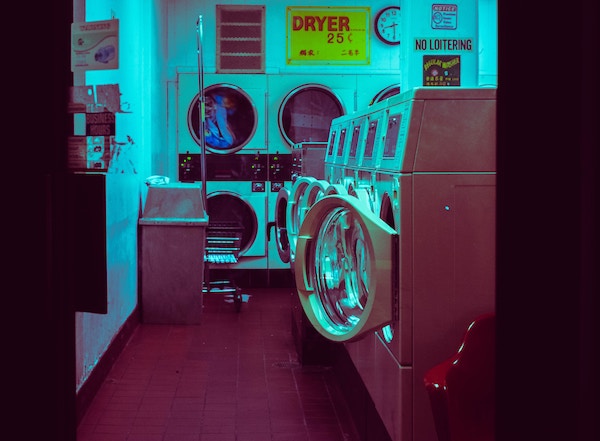During my student life, I had to live alone. I used to buy a couple of T-Shirts, wear them till they were dirty and un-wearable. Then buy a new batch. I guess that's enough to express how much I hate doing laundry.
Then I got married. And my wife, like most other woman, hates dirty laundry. And I had a lot of them by that time. So I bought a washing machine. And during the course of last four years, I helped many others buy washing machines, Bought one for my mother, and recently had to buy a new one for us (more on this later). So I gained a fair amount of experience which I believe might help others.
Types Of Washing Machines:
Two types of washing machine is common in the market. Top Loader models. and the Front Loader models. Obviously, both of them wash cloths. But there are some notable difference between them. Both of them come with their own pros and cons and there's no definite winner here. People usually buy the type that suites their need and budget.
Top Loader Washing Machines:

As the name suggests, Laundry is loaded from the top in these washing machine, in a drum. The bottom of the drum has a special type of rotating disc. it rotates and creates different movement. In many models, the drum rotates in the opposite direction to create more powerful motion and take the dirt out of the cloths. Top loaders come with a lot of advantages:
- Top loaders are relatively cheaper. In my country the price starts from $200 (~BDT 16000)
- Top loaders are less sophisticated. That was the reason for me to buy it for my mother.
- I've seen top loaders do better in washing difficult dirts than front loaders. But it's not a constant measurement.
- They need less or zero side clearance as they shakes less (when properly balanced) and the laundry is put in from the top.
They come with great features, but there are some drawbacks to consider before deciding to buy one, the drawbacks are:
- Top Loaders usually require more water than front loader washing machines.
- Most of the top loaders don't come with integrated water heater, so hot water wash is not an option for many of them (But many of them come with a separate hot water input line)
- Many top loaders don't have a water pump to pull water, instead, they depend on the water supply pressure. If your water supply has low pressure, you'll end up with lengthy wash cycles (happened with the one I bought for my mother)
- The washed laundry is hard to reach for many people as they remain at the bottom of the drum.
Front Loader Washing machines:

Front Loader washers are the more expensive, fancy ones. As the name implies, Laundry is loaded from the front of the machine. It also has a drum, but the drum is mounted sideways. It does not have any rotating disc at the bottom of the drum, instead, the drum itself rotates and washes the cloths. Front loaders come with a lot of great features:
- Front Loaders require less water, good for places with water shortage.
- They usually have sophisticated wash functions, and most of them come with integrated water heater.
- At the end of each wash cycle, there's a spin cycle (Many top loaders has it too), during that time, the drum spins really fast and takes most of the water out of the cloths. It decreases drying time dramatically.
- Front loaders are usually more energy efficient. But this is not an absolute fact in any way.
both of my previous and current washers were front loaders, I am a fan of front loaders myself, but they come with lots of cons as well:
- Front loaders are usually louder. This is because the drum is always heavy at one side and there's no way to distribute the load. They are even louder if not balanced properly.
- They are sophisticated, and requires more time to get used to.
- Front loaders are harder to move from one place to another. There are four Transportation Bolts At the back of the washer. They keep the drum from moving while the washing machine gets moved. Those bolts cause a lot of problem. If they are not removed before washing, it can cause serious damage to the machine. If they are not installed before moving, they might cause damage to the drum. They are very easy to lose and finding the exact ones is tough. They leave four big holes behind and the manufacturer usually supplies caps for the holes. Those caps get lost too, and leave the holes open for insects.
- Front loaders require more clearance at the sides. And a big clearance at the front to load and unload cloths. But they are stackable (Good for business).
- As the washer gets older, the door gets more prone to leaking. It's rare, but not impossible.
- You might start losing Socks, or other small pieces of cloths 👙after washing in a older front loader machine. They get caught between the inner and outer drum and might cause serious damage to the drum (Use of mesh washing bags for those is highly recommended).
My Preference:
I prefer front loaders. I live in Dhaka, Bangladesh. Water supply is limited and energy is expensive here. I also prefer to wash my cloths with warm water. Plus front loaders are good to look at (the washing cycle is also enjoyable to watch through the transparent door). With that being said, my current front loader costs almost five times more than a conventional top loader, so they were not gentle on my pockets.
Before Buying a washing machine:
Brand, price and features are completely up to you. There are some things to consider before making the final decision. Here's what I consider before buying:
- Chose a reputed brand, one that's highly available in the market. My last washer was from a good brand but the product was less available. so when I claimed warranty for a problem, they could not immediately repair it. it's resting in the service centre because they don't have the required spare part.
- Many of the Washers now a days come with Inverter technology. Inverter is great, it saves a lot on energy bills and can have complex washing motions for better washing. But there's a fact to consider here: Inverter is newer technology, and part availability might be an issue. (Inverters have longer warranty too)
- Most of the brands provide free installation. Ask and if needed negotiate with the dealer for free installation. This might cost you more than anticipated.
- Before deciding which type of washer to buy, decide where you should keep it. Washers require a water supply (it comes default with a 1 meter water pipe) and a water drainage line. Many houses have washing machine places with pre made connections. For other scenarios, setting it up around a wash basin will ease up the work.
- Buy a bibcock (the name deserves some sarcasm) water faucet. The supplied water in pipe can mount directly on it.

Things I learned from my experience:
I've been washing all types of laundry in my washing machines. And here are some tips/ points from my own experience:
- Use only washing machine ready washing powder. If you use conventional washing powder, you'll need a lot of it, And the wash won't be satisfactory.
- Liquid detergent works great in front loaders. They clean well and leaves almost zero residue.
- Fabric softeners are great. the first time I used fabric softener with my old cloths, I was surprised with the results.
- I did not find mesh washing bags in the local market for washing smaller things. I had to order them from Amazon through BackPack. If you are planning to buy a front loader washing machine, Consider buying mesh washing bags too.
- Read the user manual, and most importantly the balancing guide. Take your time to balance the washer. It will reduce noise, increase performance and make sure the washer stays alive for a long time.
That's a lot about washers. I really hope you find some useful information.
